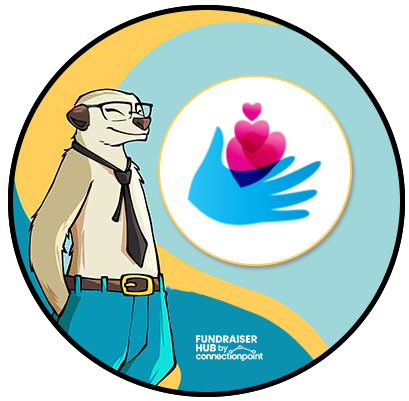
As far as roadblocks to digital fundraising go, the most common one is the fear of asking for money.
The underlying fear may not be money. We voice it as such because it’s logical. It’s ingrained in us that money is ‘taboo’ to talk about. So that’s the part we must be afraid of, right?
Or is it that we’re afraid to ask for help?
My empathy spikes when I hear this fear from campaign owners – directly or implied. It’s never the organized non-profits with professional fundraisers or established creators with a large fanbase ready to fund a project. It’s the individuals running their first campaign for something that will improve their lives… and they’re afraid to ask for help.
Fear is a bridge to cross.
Allow me to make a few assumptions about you, dear reader:
- You are more than happy to help others, even at a cost to yourself.
- You often think, “I can handle this alone.”
- When praised or complimented, you feel shy and awkward and try to bounce the compliment back or attribute it to someone else.
- You’re wondering if you’re “right” to run this campaign.
This is me. I have reasons for being this way, and so do countless others like me. Those reasons are not the point of this article, and working through them requires a much deeper understanding of psychology than I have. However, I believe it gives me a valuable perspective on this topic.
While fear itself is innate, fear of asking for money, of asking for help, is not. It is learned. By the end of this article, I hope to help you begin to unlearn it and feel confident when hitting the ‘Create your campaign’ button.
Why do we fear asking for money?
Fear is a good thing. It keeps us alive. Otherwise, we’d all be free soloing up cliff faces alongside Alex Honnold (whose brain’s fear centre is unusually inactive).
Then why am I about to help you try to kick it out the door?
This fear is not serving you. Your life is not in danger. There is no imminent threat, but you sure feel like there is. Your fear is anxiety, and it’s trying to protect you. Anxiety evolved and survived because it helps us perceive future danger and avoid it.
I prefer to think of it as having an overactive inner critic who won’t shut their mouth. I imagine my inner critic as a yappy person that I don’t particularly like but hangs around anyway. When they get too loud, I scream (internally) ENOUGH. That’s it. One word, over and over. Enough. Some days it doesn’t work. Most days, though, it does. But that took practice.
Fear and crowdfunding
Let’s look at common fears in crowdfunding:
- people won’t help/my campaign will fail
- people will judge me or get annoyed at my ask
- it’ll be too much work/I won’t be able to deliver my promises
- people will think I’m lying?
- people will get annoyed because they’re too busy
- I’ll succeed
Can you see what words fit easily in front of each point?
What if.
That’s all these are; they’re maybes. They are your brain trying to rationalize what you will do in case these situations arise. Well, then, let’s do a little thought experiment!
What if people don’t help or my campaign fails?
I have never seen a well-crafted, properly promoted campaign that doesn’t raise at least some funds. I’ve seen hundreds of campaigns with one or two lines and a stock photo thrown in raise nothing. Understandably so.
But you aren’t going to be so lazy (we have easy-to-follow toolkits to help!).
If your campaign doesn’t hit its goal, then try again! Work with a coach, utilize our toolkits, and try to find where you meandered off the path. ‘Failure’ has a bad rep, and it shouldn’t. Failure means you still have something to learn. And we let you try as many times as you need.
What if people judge me or get annoyed at my ask?
Are there people you know who would do that? Then they aren’t in your community any longer. I give you permission to dump them. Deny their gift, say thanks but no thanks, and walk away with your head high. You will not and cannot appease every human being. If you can, go run to the UN right now. They need you.
True loved ones are happy to help if they can. If they cannot help you financially, then ask them to share your campaign. A share can be worth more than what a person gives.
What if I can’t handle the work or deliver on my promises?
Proper planning is essential. Once a campaign is up and running, the work is quite minimal. Rewards you have to ship might add in more work, so limit the amount available to what you can manage.
We have done (and continue to do) so much to these platforms to take work off your hands. And if you feel the stress is unmanageable, why not start smaller? Build your confidence in your abilities and the platform. You do not have to rush into this full steam ahead.
What if people think I’m lying?
Oooh, the scammers… they ruin things for us all. Yes, fraudulent campaigns exist. But those people are not reading this post. You are, which tells me that you want to run a campaign for the right reasons. If you are authentic, transparent, and honest, people will read that in your story, see it in your pictures, and hear it in your videos.
People won’t think you are being facetious for no reason. When we get reports that a campaign might be fraudulent, they are backed up with proof (plus, we will not act on a fraud report without it).
What if… what if I SUCCEED???
I believe my readers will be one of two types: you either question why this would be a fear, or you know exactly what I’m talking about. If you’re the former, great, skip this part. If you’re the latter… my friend, you deserve this. You did the work, and you have the support. Go forth and make your mark. You. Deserve. This.
How can we work through the fear of asking for money?
Suggestions I give here are just that… suggestions. If you don’t find they help, that’s okay. I urge you to do an internet search on overcoming the fear of asking for help; Psychology Today has an article I particularly enjoy.
Otherwise, here are some tips that have helped me and others I know:
- Acknowledge and embrace your fear as an emotion. Say hello. Think or journal about why you might be feeling it. Don’t ignore it or dismiss it.
- Redefine how you perceive success. Success in crowdfunding isn’t always black and white. Sure, there is ‘hit my goal or didn’t hit my goal.’ However, goals can be completely arbitrary. If you have a campaign and one person donates, your story has successfully connected with at least one person. It’s okay to try again. It’s taken your time, which is precious, but to do something well does take time and effort.
- Write the benefits to your supporters (endorphins, tax breaks, education on a subject, etc.)
- Get up every morning and say/write, “I deserve this.”
- Another thought experiment: If your best friend, your favourite person, was asking for the same help, would you not be first in line?
- Aim for authenticity. Don’t try to do/be/say anything that isn’t your truth. If someone responds to this truth suggesting it’s anything but, that is their problem, my friend. Not yours. It’s also gaslighting.
- Failure is just a word. So is fear. Say these words repeatedly and see if they don’t start to lose their meaning.
Finally, the best thing you can do is make a plan. Successful campaigns take proper planning and work. You can’t expect to know what is effective on your first try, so use the tools available to you:
Now let’s go!
I’ll leave you with these famous words:
Asking for help isn’t a sign of weakness. It’s a sign of strength. It shows you have the courage to admit when you don’t know something and to learn something new.
-Former US President Barack Obama
Gather your fear, acknowledge it, tell it ‘enough,’ then use that energy to plan and run a phenomenal campaign.
Are you ready?

Yours in success,
Shan




